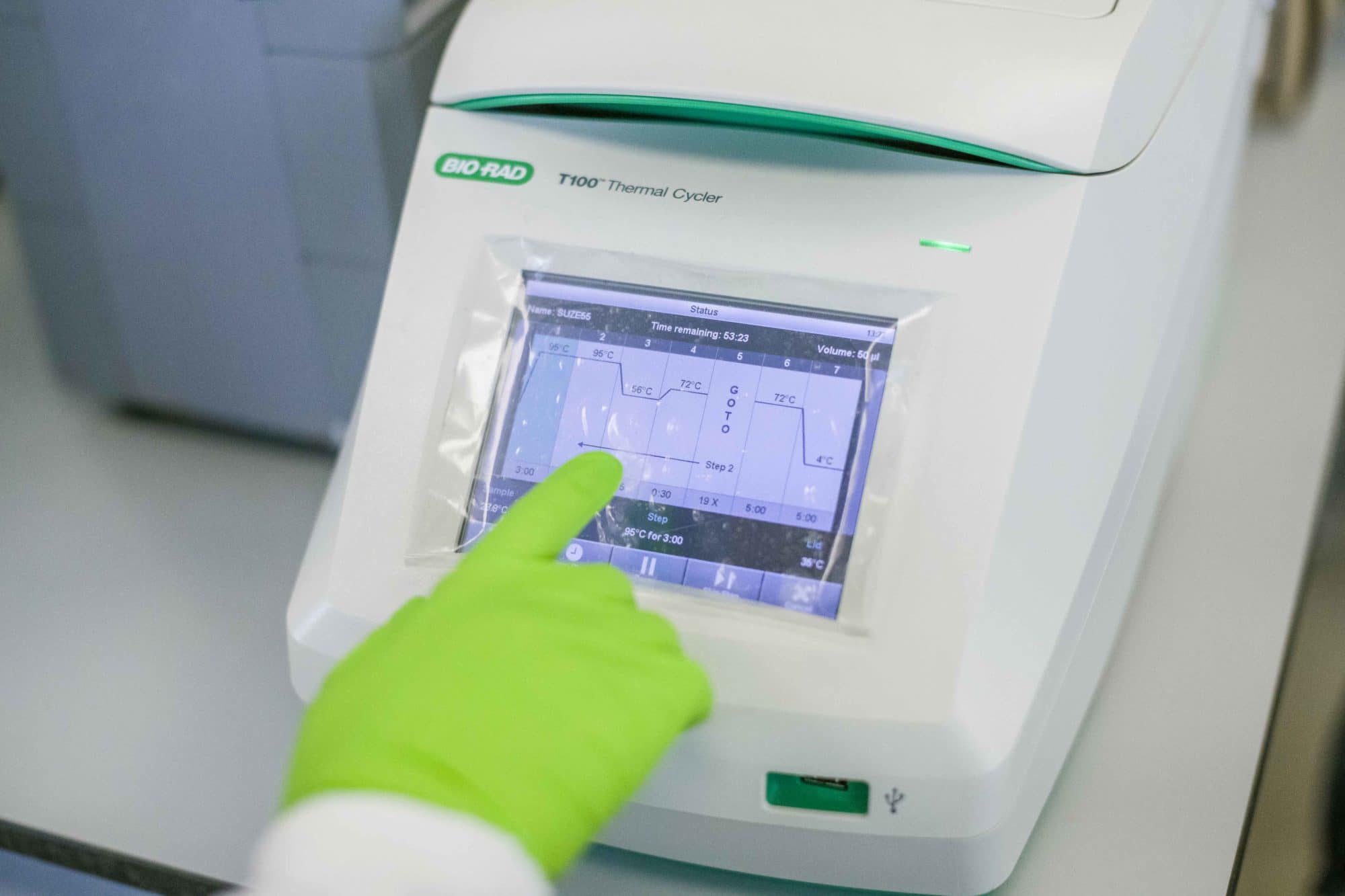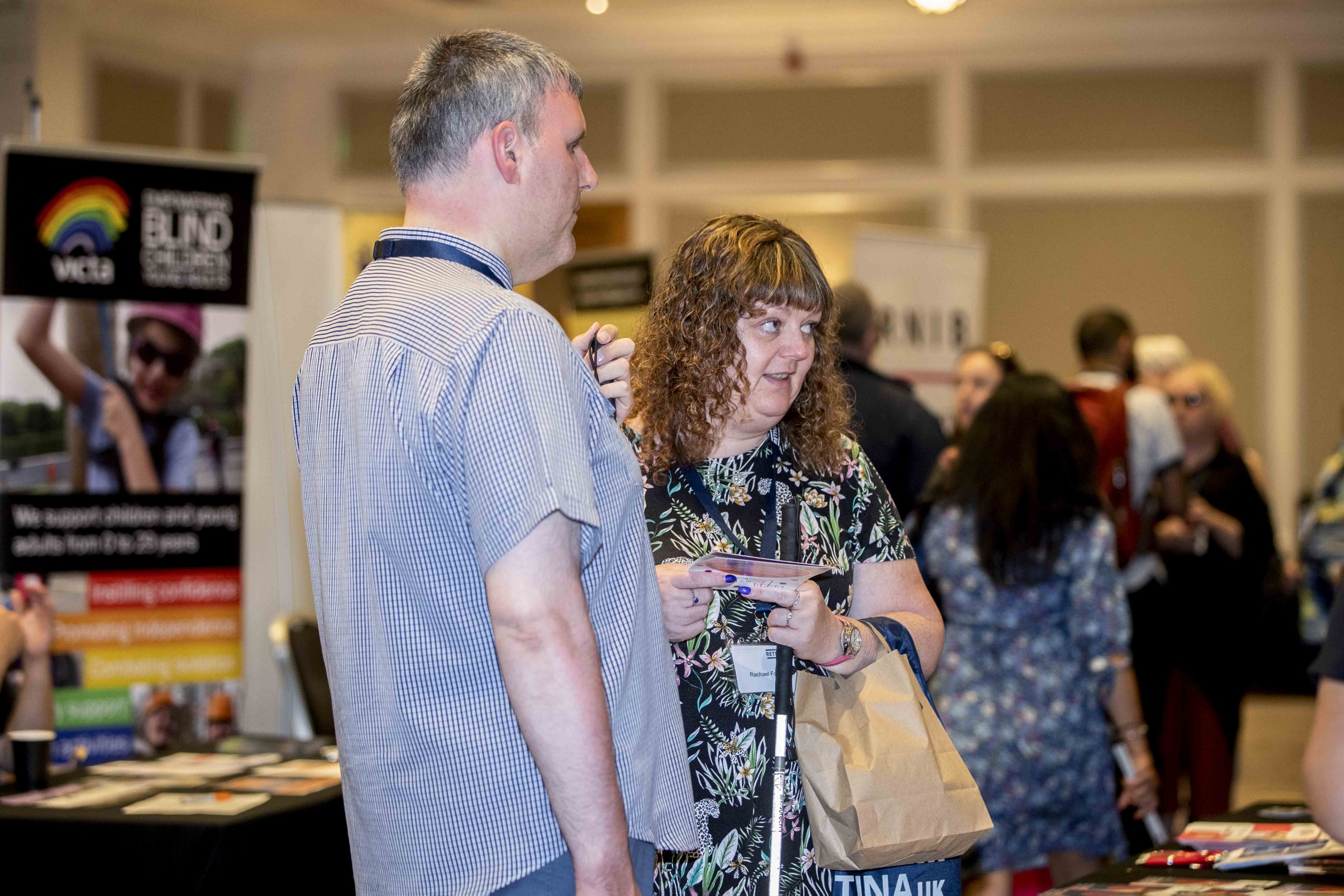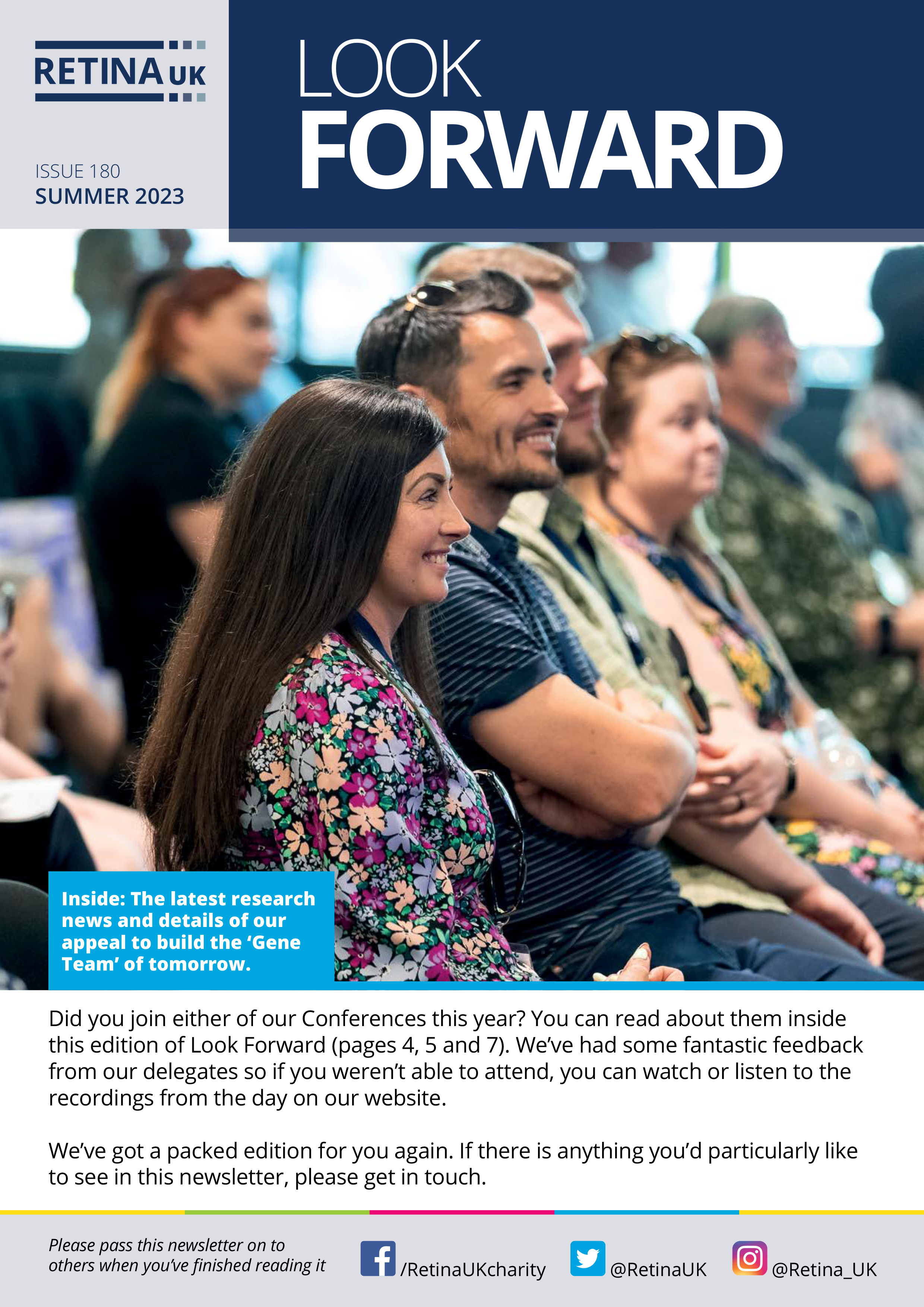ProQR makes progress with potential treatment for LCA
Despite the challenges of the pandemic, researchers and pharmaceutical companies are still making progress towards delivering new treatments for inherited sight loss.
Search results
Despite the challenges of the pandemic, researchers and pharmaceutical companies are still making progress towards delivering new treatments for inherited sight loss.
An American living with Leber congenital amaurosis 10 (LCA10) has become the first clinical trial participant in the world to receive a CRISPR gene editing treatment in vivo (inside the body).

There are many ongoing clinical and laboratory studies around the world, exploring innovative approaches to treating inherited sight loss.

We are proud to work collaboratively with a number of corporate partners to enable our community to live fulfilled lives today as well as supporting the pharmaceutical industry in their mission to develop potential new treatments.

Inherited retinal dystrophies (IRDs) are the leading cause of blindness in working-age people in the UK, and children as young as eighteen-months are regularly diagnosed.
Luxturna, a gene therapy, is only for the treatment of Leber congenital amaurosis type 2 (LCA2) and severe early-onset RP caused by mutations in a specific gene called RPE65.

Did you join either of our Conferences this year? You can read about them inside this edition of Look Forward. We’ve had some fantastic feedback from our delegates so if you weren’t able to attend, you can watch or listen to the recordings from the day on our website.
Retina UK is delighted to announce that it has awarded three new research grants worth more than £870,000.
A virtual delegate bag for our online attendees - Professionals' Conference 2024
Download copies of our Knowledge-base material